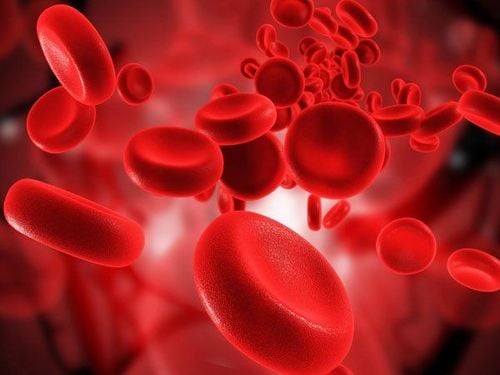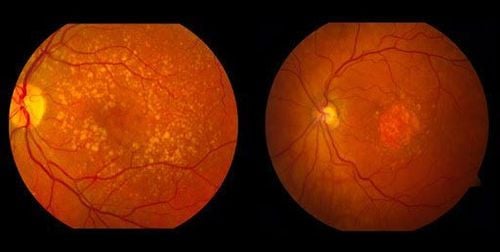This is an automatically translated article.
Vitamin B12, also known as cobalamin, is an essential vitamin that the body cannot produce. Vitamin B12 is found in food sources of animal origin, in addition to some plant-based foods or is available as a supplement in oral or injectable form.
1. Overview of vitamin B12
Vitamin B12 plays many important roles in the body. It supports the normal function of nerve cells, essential for red blood cell formation and DNA synthesis.
For adults, the recommended daily intake (RDI) is 2.4 mcg, for women who are pregnant or breastfeeding may consume a higher amount.
Vitamin B12 offers many health benefits, such as boosting energy, improving memory and helping to prevent heart disease.
Here are 9 health benefits of vitamin B12, all based on science.
2. Science-based health benefits of vitamin B12
2.1 Helps form red blood cells and prevent anemia Vitamin B12 plays an important role in helping the body produce red blood cells.
Low levels of vitamin B12 reduce the formation of red blood cells and prevent them from developing properly.
Normal red blood cells are small and round, on the contrary they become larger and typically oval in shape in cases of vitamin B12 deficiency.
Due to this larger and irregular shape, red blood cells cannot move from the bone marrow into the blood at the proper rate, causing megaloblastic anemia.
When you have anemia, your body doesn't have enough red blood cells to carry oxygen to vital organs. This can cause symptoms such as fatigue and weakness.

Vitamin B12 giúp hình thành tế bào hồng cầu ở người bệnh
2.2 Can prevent birth defects Consuming adequate levels of vitamin B12 is important for a healthy pregnancy.
Studies show that the fetal brain and nervous system need sufficient levels of B12 from the mother to develop properly.
Vitamin B12 deficiency in early pregnancy can increase the risk of birth defects, such as neural tube defects. Furthermore, vitamin B12 deficiency from the mother can contribute to premature birth or miscarriage.
One study found that women with vitamin B12 levels lower than 250 mg/dL were three times more likely to have a baby with birth defects than those with adequate intake.
For women with vitamin B12 deficiency and below 150 mg/dL, the risk is five times higher than for women with levels above 400 mg/dL.
2.3 May support bone health and prevent osteoporosis
Maintaining proper levels of vitamin B12 can support bone health.
A study done with more than 2,500 adults found that those with vitamin B12 deficiency also had lower than normal bone mineral density.
Bones with reduced mineral density can become fragile and fragile over time, leading to an increased risk of osteoporosis.
Other studies also show a link between low vitamin B12 levels and poor bone health and osteoporosis, especially in women.
2.4 May reduce the risk of macular degeneration Macular degeneration is an eye disease that mainly affects central vision.
Maintaining adequate vitamin B12 levels can help prevent the risk of age-related macular degeneration.
Researchers believe that vitamin B12 supplements can reduce homocysteine, an amino acid found in the blood.
Increased homocysteine levels are associated with an increased risk of age-related macular degeneration.
A study done with 5,000 women aged 40 and over concluded that vitamin B12 supplementation, along with folic acid and vitamin B6, may reduce this risk. The group that received these supplements for seven years had fewer cases of macular degeneration than the placebo group. Further studies are needed to fully understand vitamin B12's role in promoting vision health and preventing macular degeneration.

Thiếu vitamin B12 có thể gây tình trạng thoái hóa điểm vàng
2.5 May improve mood and symptoms of depression Vitamin B12 can improve your mood.
The effect of vitamin B12 on mood has not been fully determined. However, this vitamin plays an important role in the synthesis and metabolism of serotonin, a chemical responsible for mood regulation.
Therefore, vitamin B12 deficiency can lead to decreased serotonin production, causing a depressed mood.
Studies support the use of vitamin B12 supplements to improve symptoms of depression in people who are deficient in this vitamin.
Research in people with depression and low vitamin B12 levels found that those taking both an antidepressant and a vitamin B12 were more likely to show improved symptoms of depression, compared with those who were treated with vitamin B12. treated with antidepressants alone.
Another study found that vitamin B12 deficiency doubled the risk of major depression.
Additionally, high vitamin B12 levels are associated with better treatment outcomes and increased recovery from major depressive disorder (MDD).
While vitamin B12 supplements may improve mood and depression in people with a deficiency, research does not currently show they have the same effect in people with normal levels of B12. .
2.6 Brain Supplement Vitamin B12 deficiency has been linked to memory loss, especially in older adults.
Vitamins may play a role in preventing brain atrophy, often associated with memory loss.
A study done in people with early-stage dementia found that a combination of vitamin B12 and Omega 3 fatty acids slowed mental decline.
Another study found that even low levels of vitamin B12 can contribute to poor memory performance. More research is needed to draw reasonable conclusions about the effects of vitamin B12 supplementation on memory and cognitive function.
2.7 May Help Increase Energy All B vitamins play an important role in the body's energy production. Currently, there is no scientific evidence that vitamin B12 supplements can boost energy in people with adequate levels of this vitamin.
On the other hand, if you are deficient in vitamin B12, supplementing or increasing your intake will likely improve your energy levels.
In fact, one of the earliest signs of vitamin B12 deficiency is fatigue or lack of energy.

Những người thường xuyên mệt mỏi có thể là dấu hiệu của thiếu vitamin B12
2.8 May improve heart health by reducing Homocysteine High blood levels of the amino acid homocysteine have been linked to an increased risk of heart disease. If you are deficient in vitamin B12, your homocysteine levels will increase. Studies have shown that vitamin B12 helps lower homocysteine levels, which may reduce the risk of heart disease. However, there is currently no scientific evidence to confirm that vitamin B12 supplements are effective in this regard. Therefore, more research is needed to clarify the relationship between vitamin B12 and heart health.
2.9 Supports healthy hair, skin and nails Given the role of vitamin B12 in cell production, adequate levels of this vitamin are required to promote healthy hair, skin and nails.
In fact, low vitamin B12 levels can cause various dermatological symptoms, including hyperpigmentation, nail discoloration, hair changes, vitiligo (loss of skin color in areas of skin) and stomatitis angular (inflammation and cracking of the corner of the mouth).
Vitamin B12 supplementation has been shown to improve dermatological symptoms in people with B12 deficiency.
However, if you have a sensible diet and are not deficient in this vitamin, supplementation is unlikely to improve skin or hair health.
When you notice symptoms such as poor memory, decreased sensation in your hands and feet, drowsiness but can't sleep, constipation, headache... or symptoms of depression, problems Vision problems, swollen tongue, neurological disorders, weight loss, nausea and fatigue are all possible vitamin B12 deficiencies.
Any questions that need to be answered by a specialist doctor as well as customers wishing to be examined and treated at Vinmec International General Hospital, you can contact Vinmec Health System nationwide or register online HERE.
Source: healthline.com













